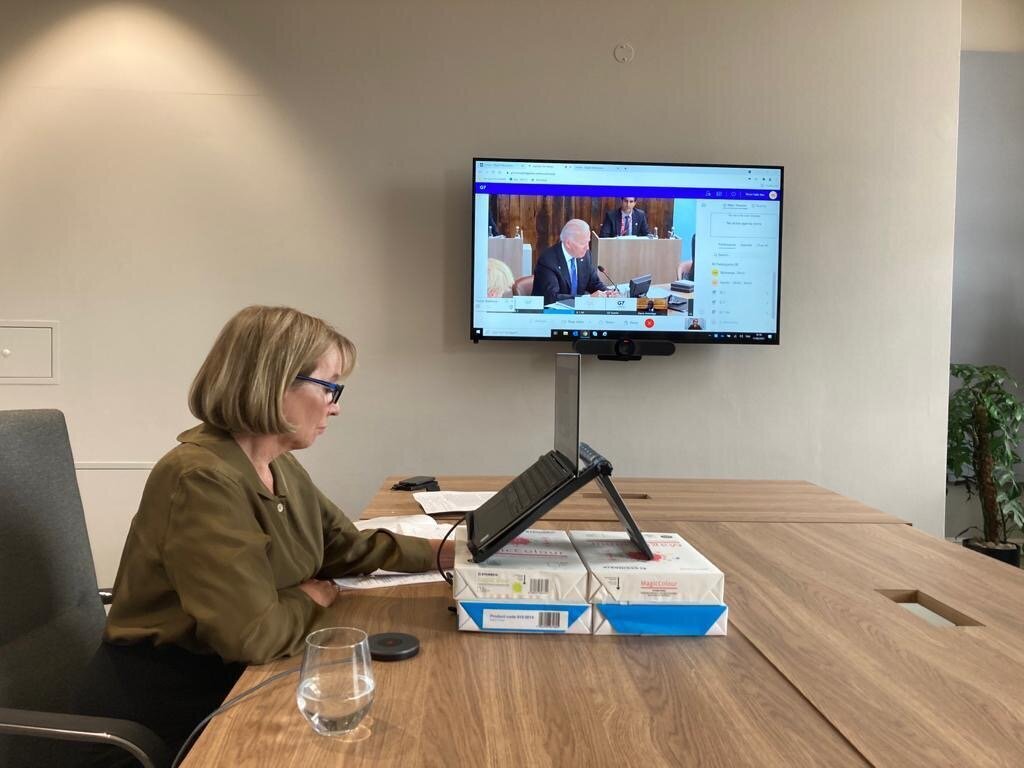Sarah Sands
Partner
Read more


While the match between England and Croatia was at its most exciting, I was poring over the final communiqué of G7. I had a stake in this, as chair of the gender equality advisory council for G7. On Friday, I presented 14 recommendations to G7 leaders on behalf of the council. They were warmly received, especially by President Biden, Prime Minister Trudeau, President Macron and the President of the European Commission Ursual von de Leyen. Boris Johnson said that he personally endorsed them.
But I have learned a trick or two about summits in the three months that I have been working with GEAC and the first thing is to check what is in print. In the past, rhetoric has not translated into action. During the French G7, in 2019, there were more than 70 recommendations and little to show for it. The following year, President Trump scrapped the GEAC.
So this year, as chair, I was determined to make something happen, or what is the point of us? We had a far shorter period for preparation than is customary, so the overwhelming mission was evidence-based focus. Work out what G7 can actually deliver and make sure that women are central to discussion.
The pandemic was an example of what happens when women become an afterthought. Women were on the front line as health workers, teachers and carers yet also expected to hold the home together. Maternity services were not thought through – there is still contradictory advice on whether pregnant women should have the vaccine. And there was not enough attention paid to the shadow pandemic of domestic violence. There is a huge data gap for women.


The composition of GEAC this year was the making of us. It was packed with scientists and economists who were used to problem solving. I looked at the list and wondered how any of them would have the time. The names included Dame Sarah Gilbert, of the Oxford vaccine team, Dr Fabiola Gionotti, Director General of Cern, the Harvard professor Iris Bohnet, Ursula Burns, leader of the White House Stem programme, Dr Ritu Karidhal, from the Indian Mars mission, Dr Dambisa Moyo, the global economist.
The civil service secretariat also set up meetings with leaders in their field to inform our recommendations and report. For instance we spoke to Alison Rose, chief executive of NatWest and author of the Rose Review about access to capital and scaling business. Every female leader we spoke to asked simply: How can I help?
We divided our subjects into education, empowerment and eradicating violence and found of course that the three are inextricably linked. I presented our recommendations to the G7 leaders alongside the Congolese gynaecologist Dr Denis Mukwege, a Nobel laureate who tends the horrifying injuries caused by sexual violence in conflict. He asked first for war rape to become a red line, triggering international condemnation. And second that we keep girls in school to make sure that they are safe.
The communiqué was as satisfying to me as the England Croatia result. It acknowledged, as we asked, that women and girls had been set back by the pandemic and needed to be central to the economic recovery. It pledged to increase the number of girls studying STEM, which will unlock for them the jobs of the future. This is not a good time to ask world leaders for funding, but the Global Partnership for Education, which we backed with our council member Alice Albright, got the lion’s share. We have been asked to produce a report by September that will both work out the international structure for dealing with sexual violence in conflict and the mechanism of a progress index, by which we can track with data what is improving for women and girls, and what is not. This will include targets and representation. When the prime minister used the odd phrase about the world becoming more feminine, I reckon he was referring to our recommendation about getting more women in decision making roles. Even at G7.

We talk at Hawthorn about being a values driven company and sometimes we get the chance to take a...
Read more
Policy preview: Uranium’s return?In September, uranium spot prices returned to levels last witnessed in 2012, spurred by hopes that...
Read more
Policy preview: double Irish surpriseIreland’s political economy is set to undergo a rather momentous shift. As a result of...
Read more
Dollars and sense: internal activism‘Green’ investment funds and public pressure are forcing big oil firms to change their behaviours,...
Read more
Dollars and sense: charging growth“Lithium is common. (The) hard part is turning Lithium salt or clay into extremely pure...
Read more
Dollars and sense: Much ado about Chesham and Amersham“Like one that draws the model of a house, beyond his...
Read more